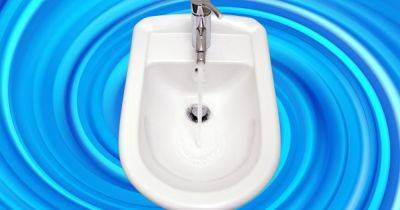Why You Always Need To Pee When You Get Close To Home
Maybe you were commuting home from work, or, perhaps, in the final stretch of your road trip. You really needed to go to the bathroom, and as you inched closer to home, the urge grew. You shifted positions in your seat and tried to distract yourself. As you approached your front door, panic set in — you beelined it to the bathroom with only a second to spare. You made it. Barely.
This phenomenon, known as “ latchkey incontinence ,” occurs because a situational cue — in this case, arriving home and putting your key in the door — triggers the need to pee. It’s more common in people with overactive bladder and urgency urinary incontinence, but it can happen to anyone. As is the case with hearing the sound of running water or being in cold weather , there’s just something about home that makes us really have to pee.
“The closer you are to that access, the more you’re going to feel that sense of urgency and your body is going to say, ‘Oh, hey, we’re almost there, we have it,’” Jessica Stern , a clinical assistant professor of psychiatry at NYU Langone Health, told HuffPost.
The Brain Tells Your Bladder When It’s OK To Pee
The mind and bodyare deeply connected and the two work in tandem to govern many body functions, including hunger, sleepinessand — you guessed it — urination.
The brain and bladder communicate throughout the day to ensure we are peeing when it’s appropriate, Stern said. When, for example, we’re in the middle of a long car ride with no rest stops in sight, the brain essentially tells the bladder to lay low until a bathroom is nearby.
“The brain sends signals to the bladder, telling it when and when not to contract,” explained Dr. Victor W. Nitti , a professor of urology and obstetrics and gynecology at







